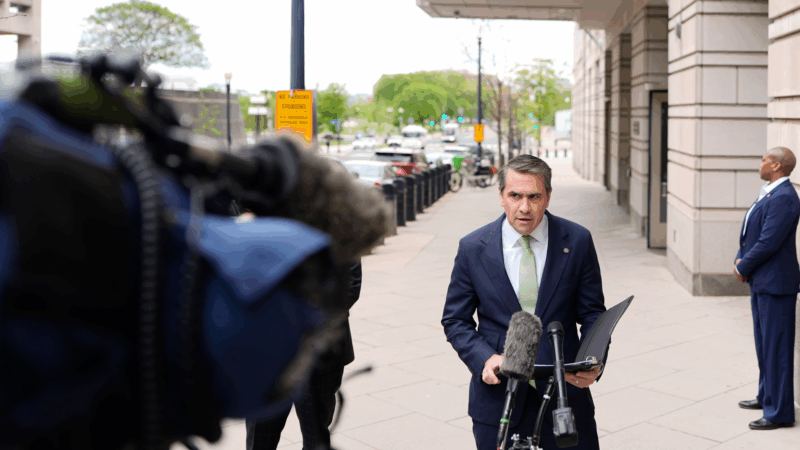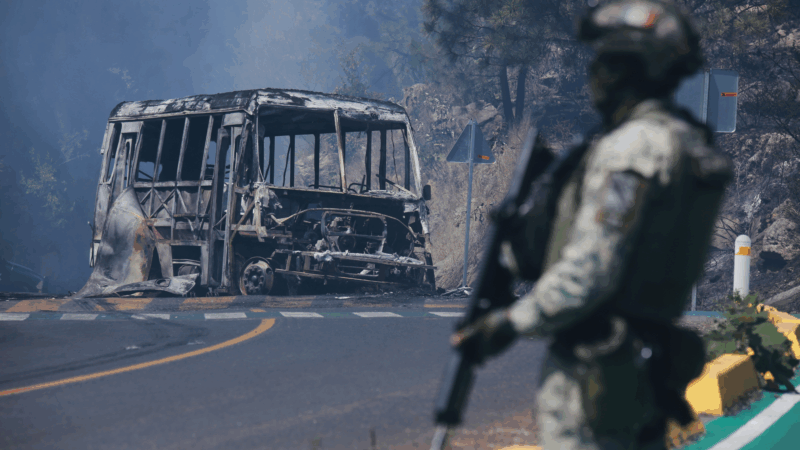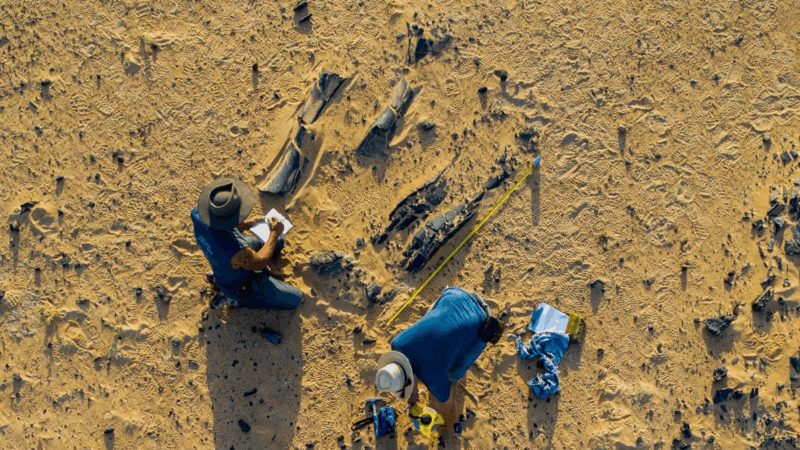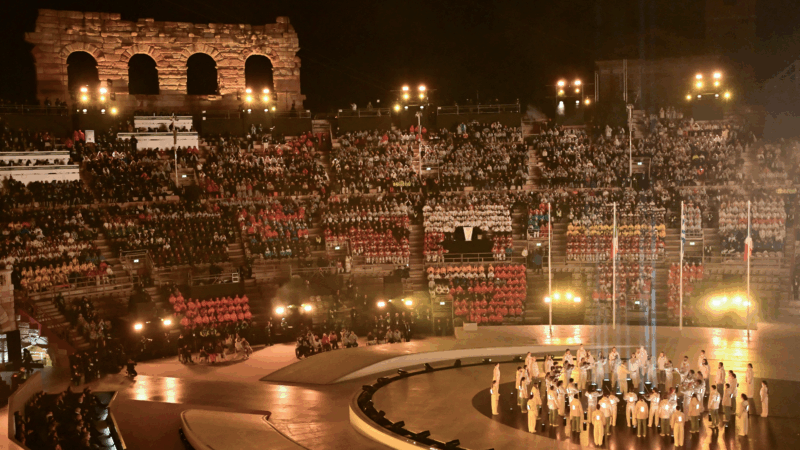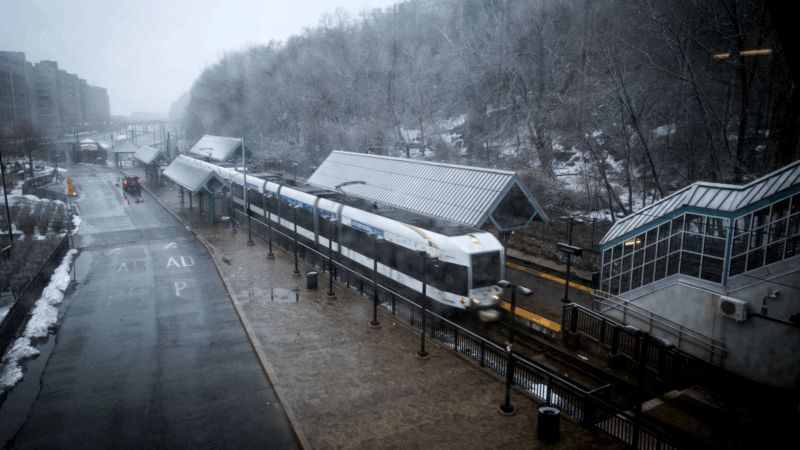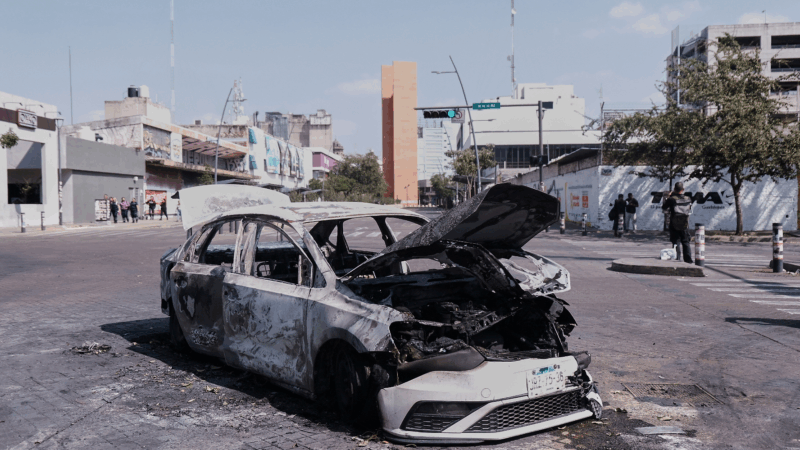Todd Blanche’s past hangs over him as top DOJ official on Epstein case
This time last year, Todd Blanche was Donald Trump’s personal attorney, defending him in the face of multiple criminal indictments. Now, Blanche is the No. 2 official in the Trump Justice Department and spearheading damage control over the administration’s handling of the Jeffery Epstein files.
Blanche met behind closed doors last week with longtime Epstein confidant Ghislaine Maxwell, who is serving a 20-year prison sentence for helping Epstein sexually abuse underage girls.
While the interview is part of the Justice Department’s efforts to tamp down the public fallout from the Epstein matter and the conspiracies it’s fueled, Blanche’s personal involvement is raising questions of its own.
“The best thing for any administration is to project to the American people that they are handling a matter like this with impartiality and on a level playing field so that the president is not appearing to use the Justice Department to hide sensitive information about himself,” said Claire Finkelstein, a professor at the University of Pennsylvania law school.
Blanche’s hands-on approach here could backfire because of his previous work on Trump’s behalf, she said.
“It is very concerning when you have someone who was formerly the president’s personal lawyer then getting involved to possibly assist the president in protecting his own image in this — when he should be acting in a disinterested way for the Justice Department to ensure that justice is done here and that the interests of the American people are served.”
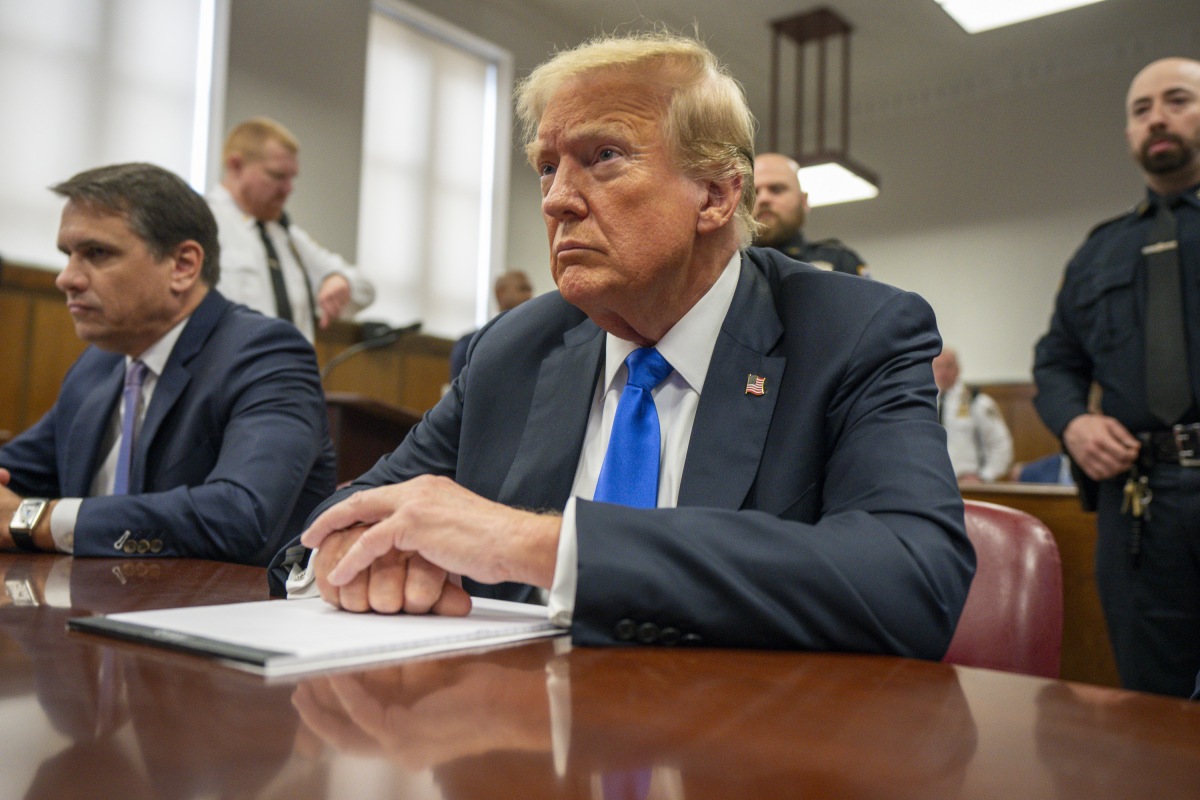
Unusual approach to interview
It is highly unusual for a senior Justice Department official, let alone the deputy attorney general, to conduct an interview with a potential cooperating witness.
“Generally, the line prosecutors who are handling the matter are going to do the interview of somebody who is willing to provide information to the government, even in the most high-profile case,” said Sarah Krissoff, a former federal prosecutor who worked under Blanche in New York.
“If the purpose of the interview is to show the American public, ‘Hey, we’re following all these leads, we’re seeing if there’s any viable case against other individuals,’ I think that is undermined by having Blanche do those interviews,” said Krissoff, who’s now in private practice.
The Maxwell interview took place over two days last week at the federal courthouse in Tallahassee, Fla., where she is serving her sentence.
Normally, law enforcement agents, in this instance from the FBI, would sit in on an interview like this, Krissoff said, adding that it would be “enormously unusual” not to follow that practice.
“You generally would never conduct an interview of a cooperating witness without law enforcement personnel in the room,” she said. NPR asked the Justice Department who else from the government took part in the Maxwell interview. In response, DOJ spokesman Gates McGavick only referred to Blanche’s tweets on the meeting, which make no mention of other participants.
The Justice Department also has not provided any information on the substance of the meeting, what assurances or protections Maxwell received beforehand or what the contours of the conversation were.
“This Department of Justice does not shy away from uncomfortable truths, nor from the responsibility to pursue justice wherever the facts may lead,” Blanche posted on social media.
Lack of trust in administration approach
The entire saga around Epstein, who died in a federal lockup in 2019 while awaiting trial on sex-trafficking charges, has fueled conspiracy theories. The secrecy surrounding the Maxwell interview has only contributed to the lack of trust — for many — in the administration line.
Krissoff said that answers to the basic questions about the interview, including the contours, would help provide some measure of assurance to the public that everything is above board.
“Was she asked about her own conduct or was she asked to only speak about other people’s conduct?” Krissoff said. “There are lots of questions about the process here that I certainly would like to know the answer to.”
Maxwell’s attorney, David Oscar Markus, told reporters afterwards that Maxwell answered every question “honestly and truthfully, to the best of her ability” and that she never invoked a privilege or refused to answer.
“She was asked about maybe a hundred different people. She answered questions about everybody. And she didn’t hold anything back,” Markus said.
Separately, Maxwell has also been called to testify before the House Oversight Committee, and has asked for immunity to speak freely. The committee has already indicated it won’t consider granting her immunity.
Trump has not ruled out a potential pardon for Maxwell, but he’s also made no public commitment either way.
Friendship with Maxwell’s lawyer
For his part, Markus said that no offer of clemency has been made.
He also had praise for Blanche.
“The deputy attorney general is seeking the truth. He asked every possible question, and he’s doing an amazing job,” Markus said. What Markus did not say at the time is that he and Blanche are friends.
In June 2024, Blanche appeared as a guest on Markus’ podcast, “For The Defense.”
“Everybody knows who Todd is,” Markus says in the opening moments of the episode. “And he’s the first guest on ‘For The Defense’ to appear twice, so welcome to the show, Todd.”
The two discussed Blanche’s legal work for Trump, including at his criminal trial in New York where he was convicted on 34 counts in a hush money case.
Toward the end of the episode, Blanche calls Markus a friend and they joke about him becoming the show’s first three-peat guest.
Finkelstein, the law professor, said their friendship isn’t problematic from a legal ethics standpoint.
“The world of criminal justice is ultimately a small one, especially involving high-profile figures in federal law, and everybody sort of knows everybody else,” she said.
But it may be yet another reason for members of the public to have questions about the Maxwell interview and Blanche’s involvement, especially for those already skeptical of the administration’s handling of the Epstein files.
“It may backfire because if there is an attempt to use Todd Blanche as a cover-up in this way, and then to use the awesome power of the pardon — which is extraordinarily powerful — to keep Maxwell from talking would be a grave concern” Finkelstein said.
Such a scenario, she added, would “leave the American people without the transparency that both sides of the aisle are beginning to demand.”
Transcript:
AILSA CHANG, HOST:
President Trump is in Scotland today, and even there, he was asked about his administration’s handling of the files of convicted sex offender Jeffrey Epstein.
(SOUNDBITE OF ARCHIVED RECORDING)
PRESIDENT DONALD TRUMP: Well, I haven’t been overly interested in it. You know, it’s something – it’s a hoax that’s been built up way beyond proportion.
CHANG: Trump, who knew Epstein, has repeatedly tried to change the subject when asked about him. The Justice Department, meanwhile, is scrambling to limit the fallout over Epstein, which has only added to the conspiracy theories surrounding him. NPR justice correspondent Ryan Lucas reports.
RYAN LUCAS, BYLINE: In June 2024, Todd Blanche was serving as then-former President Donald Trump’s personal attorney when Blanche made an appearance on a legal podcast hosted by a prominent defense lawyer named David Markus.
(SOUNDBITE OF PODCAST, “FOR THE DEFENSE”)
DAVID MARKUS: OK, I want to welcome Todd Blanche to “For The Defense.” Everybody knows who Todd is. And he’s the first guest on “For The Defense” to appear twice. So welcome to the show, Todd.
TODD BLANCHE: That is an honor. Thank you very much, David. I really appreciate it.
LUCAS: The two discussed Blanche’s legal work for Trump. And Blanche, at one point, recounts the story of when he first got a call from Trump to be his lawyer.
(SOUNDBITE OF PODCAST, “FOR THE DEFENSE”)
BLANCHE: I was shocked. I didn’t think anybody would believe me, so I grabbed my daughter and dragged her into the room that we were – you know, my bedroom and put President Trump on speaker for a minute so that she would – in case he never called me again.
LUCAS: Flash forward 13 months and Blanche is now the deputy attorney general – the No. 2 official in the Trump Justice Department. Markus, meanwhile, is a lawyer for Ghislaine Maxwell, who’s currently serving a 20-year prison sentence for helping Jeffrey Epstein sexually abuse underage girls.
Last week, Blanche and Markus sat down with Maxwell behind closed doors to discuss what she knows about Epstein and his associates. The interview is part of the Trump administration’s attempt to tamp down outrage over its handling of the Epstein files. Blanche’s friendship with Markus is not, from a legal ethics standpoint, problematic, says University of Pennsylvania Law School professor Claire Finkelstein.
CLAIRE FINKELSTEIN: The world of criminal justice is ultimately a small one, and everybody sort of knows everybody else.
LUCAS: But Blanche’s involvement in interviewing Maxwell is highly unusual all the same, starting with his position in the department, says Sarah Krissoff, a former federal prosecutor.
SARAH KRISSOFF: So generally, the line prosecutors who are handling the matter are going to do the interview of somebody who is willing to provide information to the government, even in the most high-profile case.
LUCAS: She also says that FBI agents would usually participate in the meeting. It’s unclear whether that happened with Maxwell. Asked about other participants, a department spokesman only referred to Blanche’s tweets about it, which make no mention of anyone else being involved. It’s also unclear what Maxwell told Blanche.
KRISSOFF: If the purpose of the interview is to show the American public, hey, we are following all these leads, we are seeing if there’s any viable case against other individuals, I think that is undermined by having Blanche do those interviews.
LUCAS: For his part, Blanche has said that the department will pursue justice wherever the facts may lead. Again, Finkelstein.
FINKELSTEIN: The best thing for any administration is to project to the American people that they are handling a matter like this with impartiality and on a level playing field so that the president is not appearing to use the Justice Department to hide sensitive information about himself.
LUCAS: But she says Blanche’s hands-on approach here raises concerns about what role he’s playing.
FINKELSTEIN: It is very concerning when you have someone who was formerly the president’s personal lawyer then getting involved to possibly assist the president in protecting his own image in this.
LUCAS: With all these questions about Blanche’s personal involvement, it’s unclear whether his efforts will help quell the uproar over the Epstein matter or whether they’ll add to it.
Ryan Lucas, NPR News, Washington.
Mexico fears more violence after army kills leader of powerful Jalisco cartel
School was canceled in several Mexican states and local and foreign governments alike warned their citizens to stay inside following the army's killing of the leader of the Jalisco New Generation Cartel, Nemesio Rubén Oseguera Cervantes, "El Mencho," and the violence it spurred
Newly discovered dinosaur species was a fish-eater with a huge horn
The semi-aquatic dinosaur, Spinosaurus mirabilis, was discovered by an international team of scientists working in Niger.
Reporters’ notebook: The Olympics closing ceremony is way more fun than you’d think
Olympics opening ceremonies tend to get more love than their closing counterparts. But a pair of NPR reporters who watched both in Italy left with a newfound appreciation for the latter.
Northeast readies for a major winter storm, with blizzard warnings in effect
New Jersey through Massachusetts could see 2 feet of snow. New York City's mayor said the city had not "seen a storm like this in a decade."
Mexican army kills leader of Jalisco New Generation Cartel, official says
The Mexican army killed the leader of the powerful Jalisco New Generation Cartel, Nemesio Rubén Oseguera Cervantes, "El Mencho," in an operation Sunday, a federal official said.
Ukraine’s combat amputees cling to hope as a weapon of war
Along with a growing number of war-wounded amputees, Mykhailo Varvarych and Iryna Botvynska are navigating an altered destiny after Varvarych lost both his legs during the Russian invasion.

